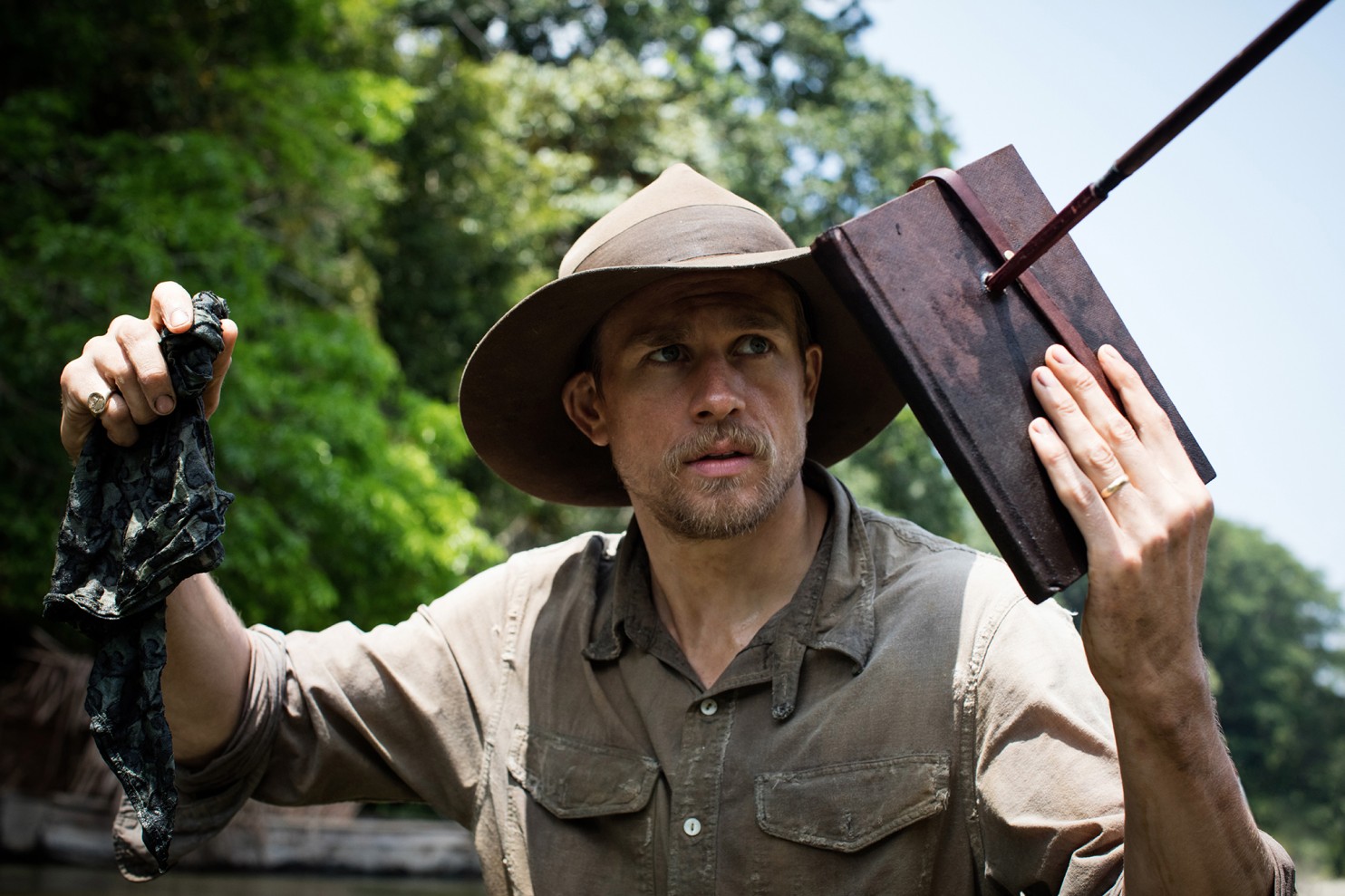
The Lost City of Z tells the true story of Percy Fawcett (Sons of Anarchy’s Charlie Hunnam), a British artillery officer and cartographer who is sent by the Royal Geographical Society to map a jungle area at the border of Brazil and Bolivia at the turn of the 2oth century. His expedition gives evidence of an ancient city in the jungle, which he then dedicates his life attempting to find, despite ridicule from his peers. The film, based on the book by David Grann, is an incredibly compelling story that is one part Lawrence of Arabia, one part Into the Wild, and one part Indiana Jones, with just a dash of Jane Austen.
The film benefits from some very fine performances. Hunnam’s Fawcett is motivated in his quest by pride, hoping to give honor to his family name and prove his self worth, and Hunnam underplays this insecurity quite nicely. The screenplay overstates it just a bit, but Hunnam internalization makes up for it. Robert Pattinson has a really nice turn as Fawcett’s fellow explorer, Henry Costin. Pattinson portrays Costin as just slightly nebbish, though he still carries himself with confidence. Costin could have been a very one dimensional character, but Pattinson gives him some complexity. Sienna Miller gives a strong performance as Fawcett’s put upon wife, Nina, who is burdened with the responsibility of raising their family on her own while he gone for years at a time. Nina is depicted as an incredibly independent woman. Given the time period in which the film takes place, I would imagine accurately depicting a woman’s role in society, and specifically Nina’s role in her Percy’s life, without viewing it through a prism of modern day sensibilities would be a difficult task. I can not say if I Miller and screenwriter James Gray were successful or not, but Miller’s performance is top notch regardless.
As with most films based on true life events, facts have been altered a bit from the real events (or at least the events depicted in Grann’s book), but films have a relatively definitive timeframe in which to tell a story, and have particular story arcs to follow, so this type of manipulation is common for films of this nature. Like The Founder, I was inspired to research the subject further, which is, in my opinion, is the mark of a good biopic. What is off-putting, however, is that like many biopics, particularly ones that span many years as this does, the three act structure of the film’s screenplay gets a bit muddy. Generally a film’s structure goes unnoticed if it is done correctly, but here you notice it going off the rails a touch. Again, this is typical for a film of this scope, but noticeable nevertheless. I believe this could have been avoided had a fifteen minutes been cut from the film.
Despite a rather slowish pace, The Lost City of Z has its fair share of tense and exciting moments, and I found myself engrossed in the story it had to tell. It’s not a perfect film, but if anything, I hope it leads to more tales of early exploration on screen.

